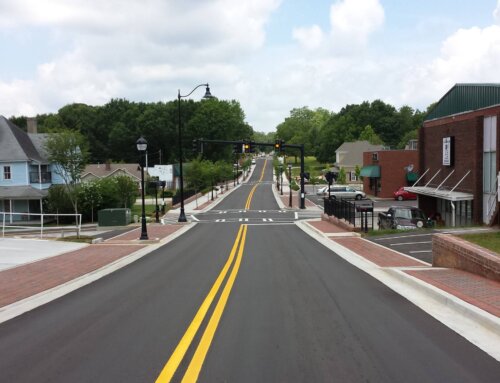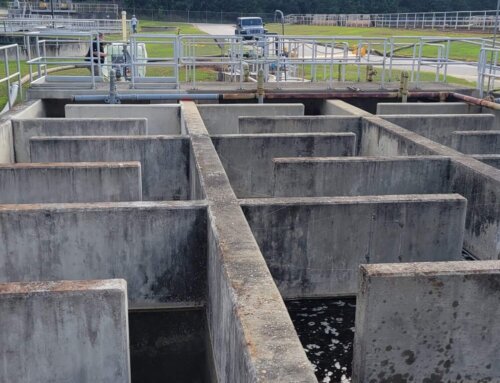For many years, deep learning technologies have been successfully applied in many different sectors—civil engineering included. In fact, machine learning technique took the center stage in the industry long ago with the emergence of complex buildings such as skyscrapers. Now more than ever, we see the application and development of AI in the construction industry, which includes the use of intelligent algorithms, big data, and deep learning machines that have transformed productivity performance.
Practicing civil engineers, contractors, and service providers have all been using AI to solve a whole range of problems. For instance, Artificial Intelligence in civil engineering has become more sophisticated, with efficiencies feeding directly into construction processes. AI is also applied in the initial stages of many projects in design optimization, risk control, and improving productivity.
It is imperative to realize construction companies that have already started implementing AI practices are 50% more profitable. More importantly, Artificial Intelligence as a whole has a range of functions in civil engineering. In an age where machines can think rather than just do, engineers can make better judgments while discharging their services more effectively.
If not convinced, here are some uses of AI in civil engineering that have revolutionized the industry.
AI for Better Designs of Buildings
With skylines of major cities around the world peppered with iconic buildings of all shapes and sizes, we can all agree that the boundaries and standards of design and engineering have been pushed beyond their limits. This is all thanks to the biggest game-changer in the industry—Artificial Intelligence in 3D Building Information Modelling (BIM).
BIM tools help civil engineers to facilitate the creation and design of more accurate 3D models prior to the construction work. Now, the addition of AI-based design exploration allows engineers to improve design using collected data from simulations, models, and past projects.
In terms of incorporating machine learning into the BIM process, civil engineers can create buildings blueprints, floor plan designs, and more. Also, they can make the necessary changes across all areas of design with peak accuracy.
Overcoming Cost/Schedule Overruns
Most mega construction projects go over budget and are susceptible to inaccuracies since they are often prepared within a limited timeframe and with limited information regarding the scope of the entire project.
Although cost overruns can’t be prevented, using AI in construction allows an engineer to have a clear picture of cost estimates and outcome from previous projects to come up with better plans and more accurate budgeting. Learning algorithms that employ characteristics of completed projects allow civil engineers to predict cost overruns and envision realistic timelines for existing projects.
Furthermore, AI offers remote site access and helps engineers to implement real-time training resources in order to enhance skills and improve team leadership.
A good example is Doxel, an AI company that uses deep learning algorithms, LIDAR, and Camera equipped drones on job sites to recognize objects, access quality of construction, and quantify materials used. This information is then used to provide real-time feedback to all stakeholders on the actual costs and time spent in comparison to the original budget and schedule.
Gathering such information helps to mitigate cost/schedule overruns and improve overall productivity on the job site.
Identifying and Mitigating Risks
The construction process involves safety risks that can lead to actual accidents. AI provides the opportunity for more accurate data gathering from real-world context models to help civil engineers identify potential hazards in the construction process.
Enabling the creation and use of relevant technology in construction helps an engineer to implement useful measures for risk control as AI can interpret a collection of construction site information to draw meaningful conclusions.
Also, AI-enabled cameras and networks can continuously monitor all areas of construction and allow engineers to assess equipment use, track progress, and analyze activities in real-time, which helps in the early detection of potential risk hazards.
A good example of the application of such technology lies in the popularity of Indus.ai. This San Francisco tech company set AI-supported cameras around construction sites to provide real-time footage while collecting and evaluating data to give construction managers insights on things like the movement of materials and labor deployment at various areas of the site. This interactive dashboard also allows civil engineers to anticipate anything that may prove dangerous and make better decisions with regard to worker’s safety.
Smart Construction On-site to Speed Project Delivery
Civil engineers can use AI models for accurate, cheaper, and less disruptive construction projects. This includes relying on off-site facilities operated by independent robots that assemble essential components of a construction project, which are then pieced together by human workers on the construction site.
Such off-site builders, according to one June report by McKinsey, gives the construction industry a huge productivity boost with a quicker turnaround as compared to on-site construction.
AI-supported machines can complete prefabricated structures such as walls, and building panels more efficiently than human workers, allowing them to focus on achieving more complex tasks such as plumbing, and installing electrical, and HVAC systems.
AI for more Efficient Facility Management
AI-powered database systems can inform engineers on the best methods of on-site construction, based on pre-existing information of blueprints and design from previous projects. Also, AI can be used in an administrative capacity, such as allowing employees to schedule leave days and input sick days, monitor deliveries of construction materials, and indicating delays.
This collection of huge amounts of data makes it perfect to use AI to adjust the construction project in question accordingly and automatically detect understaffed construction areas that might need more employees.
Adopting AI for Construction Solutions
As we go forward, the applications of Artificial Intelligence in construction could turn out to be virtually limitless. Certainly, with the civil engineering field being one of the largest consumer bases and worth billions of dollars a year, the addition of artificial intelligence helps solve many problems experienced in design optimization, parameters estimation and identification, and damage detection in a sector that remains critically under-digitized. We strongly believe that the continuous application of artificial intelligence in civil engineering will drive a fundamental shift in improvements in the construction sector.







Leave A Comment